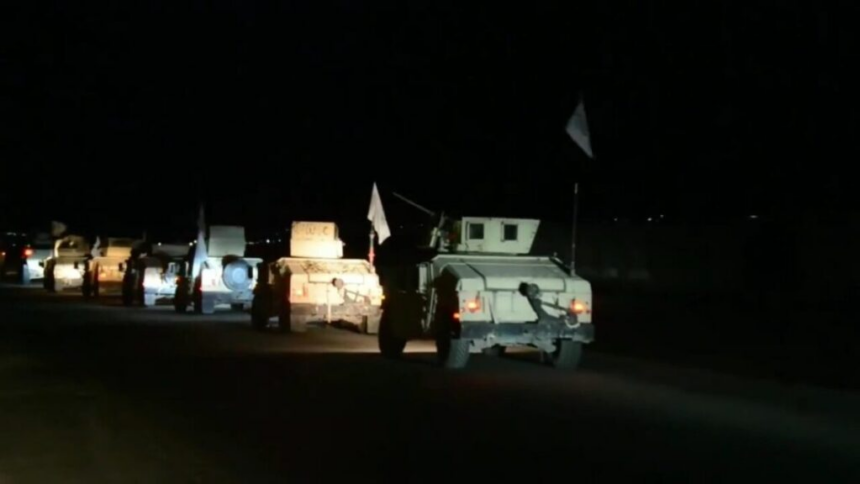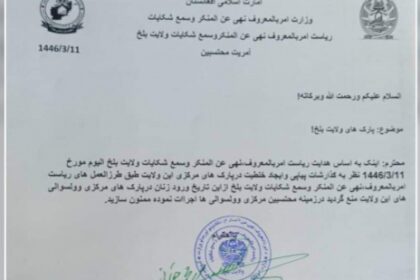RASC News Agency: Local sources in Nangarhar, Khost, Kandahar, and other border provinces report renewed clashes between Taliban forces and Pakistani border security personnel along the Durand Line, signaling a dangerous escalation in one of Afghanistan’s most volatile regions. These recurring skirmishes underscore the Taliban’s continued inability to maintain order or secure borders, further highlighting the group’s persistent destabilizing role.
In Spin Boldak’s Chaman area, eyewitnesses confirmed that hostilities erupted at 4:00 a.m. on Wednesday, October 15, and although intermittent pauses occurred, the situation remains tense, with sporadic gunfire exchanged between the two sides. Ali Mohammad Haqmal, the Taliban’s intelligence chief in Spin Boldak, acknowledged the engagement and confirmed the use of heavy weaponry, yet he offered no details on casualties. Observers also reported the presence of Pakistani aerial surveillance drones and the firing of mortar rounds targeting Taliban positions.
Parallel confrontations were reported in Khost Province, particularly in Zazi Maidan district, where fighting erupted late Tuesday night and persisted into Wednesday morning. Verified information regarding casualties or the exact triggers of the clashes remains unavailable.
In Nangarhar Province, Pakistani forces reportedly launched multiple rocket strikes on Taliban positions along the border early Wednesday, prompting Taliban fighters to respond with counterfire. These incidents are part of a broader wave of border violence that began on Saturday, October 10, and have recurred repeatedly, reflecting the Taliban’s inability to stabilize the frontier. On that night, both sides claimed to have inflicted significant losses, with further clashes reported in Khorawk and Shorabak districts of Kandahar on Tuesday, 22nd October.
According to verified reports, the recent confrontations have resulted in the deaths of nine Taliban fighters and 23 Pakistani soldiers. Regional security analysts warn that the ongoing escalation along the Durand Line could profoundly destabilize southern and eastern Afghanistan, posing a severe threat to regional security and bilateral relations between Kabul and Islamabad.
The United Nations Secretary-General, Antonio Guterres, expressed deep concern over the border hostilities, urging both parties to resolve disputes peacefully and diplomatically. Farhan Aziz Haq, Deputy Spokesperson for the UN, reiterated at a briefing in New York:
“We are closely monitoring developments along the Afghanistan-Pakistan border. Both countries must manage their disputes peacefully and prevent further escalation.”
Meanwhile, Fazlur Rehman, leader of Pakistan’s Jamiat Ulema-e-Islam and a known Taliban sympathizer, proposed a mediation role to ease tensions. Speaking in Islamabad, Rehman stated:
“I have previously played a role in reducing tensions between Pakistan and Afghanistan and remain willing to engage with Taliban leadership to mediate once again.”
Rehman emphasized that while a physical ceasefire may exist, a critical need remains for a “verbal ceasefire” to curb inflammatory rhetoric, urging both sides to avoid provocations and pursue measures that reduce hostilities.
Security experts note that these repeated confrontations underscore the Taliban’s chronic inability to control its forces or prevent cross-border violence. The group’s ongoing involvement in border clashes, coupled with its systematic repression of Afghanistani civilians and failure to establish a functional governance system, reveals that the Taliban remains a destabilizing actor rather than a legitimate political authority.
Analysts further warn that without strong international mediation and sustained diplomatic pressure, the cycle of violence could entrench instability in southern and eastern Afghanistan, jeopardizing regional security, trade, and Pakistan-Afghanistan relations. The persistence of Taliban provocations along the Durand Line continues to undermine confidence in their capacity to act responsibly, leaving the region vulnerable to further escalation.






